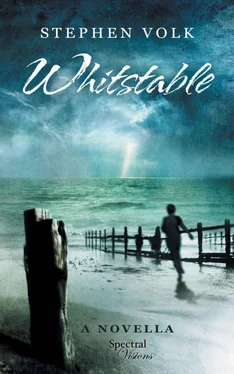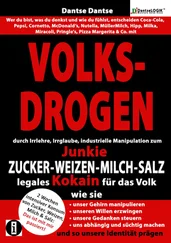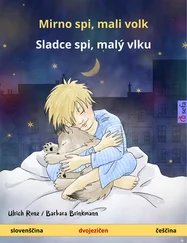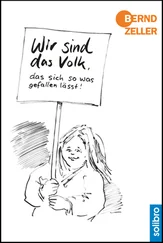* * *
The hospital, the car park, the very sight of the building itself inevitably brought back memories of Helen, and he was ready for that. Mercifully, she hadn’t passed away there, but during her long illness visits were all too frequent, and each time accompanied by a sense of immense dread, of what might be discovered, of what one, this time, might be told. He was surprised, then, that no such feelings asserted themselves. On the contrary, he felt calm, in fact unusually so. Plainly there was a world of difference between visiting the love of your life and—this.
Naturally Wake had questioned why he wanted to do it, and Cushing wondered how many other questions the policeman kept to himself, and for how long he would continue to do so. But in reply to the man’s enquiries—clearly worried at a widower seeing a dead body so recently after the death of his wife—he could only reply honestly that he felt nothing.
“Peter, these places are cold and clinical. They breathe death.”
“I assure you, dear boy. I’m perfectly fine.”
As they walked along the antiseptic-smelling corridor Wake explained that the sister’s expression ‘Rose Cottage’ was the euphemism often used by nursing staff when talking about the hospital mortuary. As they approached it Cushing thought of the roses he tended in his own garden, round his own front door. The roses Helen loved. He pictured himself snipping one off and handing it to her, as he did, on many an occasion. How she’d invariably reward him with a kiss on the cheek.
They’d done their best to take the curse off the viewing room, of course, but it was still a hospital room badly playing the part of a Chapel of Rest. They almost needn’t have bothered. As the door opened it had the feel of a shrunken and poverty-stricken church hall. The floor was the same slightly-peeling linoleum as the corridor, the walls insalubrious teak, with cheap beading intended to simulate panelling, and curtains on one wall a deep navy blue, the only colour.
He’d had it explained to him that the post-mortem had been done and the body was now being stored there—presumably in one of those pull-out fridges—until the undertakers collected it. He removed his hat and stepped closer to the bed, bier, table, whatever it was called. He was all too aware that the actions he was going through were normally the province of the close family, even though Wake had told him Carl’s mother had no desire to see the body of her boyfriend. Accordingly, in spite of all he knew about the dead man, he felt he should behave with respect.
At a nod from Wake, who remained at the door, the assistant moved forward and folded down the white sheet covering the face so that the head and shoulders were exposed. Cushing noticed the clean, fastidiously manicured hands before the man stood back.
In death, they say, we are all equal , he thought.
He looked down and saw that a white linen cravat was tucked round the corpse’s neck. He reached over and touched its rim with his fingertips. The attendant took a step forward and was about to speak, but Wake raised his hand. The man stepped back.
Tugged down, the elastic of the linen cravat revealed a livid scar running round the circumference of Gledhill’s neck, the twine stitches, heavy and harsh, still abundantly visible. Frankenstein stitches. Holes dug deep with thick needles like fish hooks into dead, unfeeling flesh.
“Impact would have killed him outright,” Wake said. “The front of the car was like a concertina. Steering column went straight through his chest. No chance.”
Cushing pictured himself as General Spielsdorf again, holding the stake over Carmilla’s heart and shoving it down with every ounce of his strength. Blood pumping up, filling the cavity as her wild eyes stared in perplexed fury.
“Cigarette?”
Cushing shook his head. Wake lit one of his own and blew smoke. It drifted in front of Gledhill’s cadaver like the mist in Karnstein castle graveyard.
“As if that wasn’t enough, he was decapitated too. The force of the crash sent him right into the windscreen. They found his head thirty yards down the hard shoulder. Apparently it’s not uncommon. Tell you what. I’d never be a motorway cop for all the tea in China.”
Cushing saw himself lifting up the body of Ingrid Pitt by the hair. The silvery flash of his sword as it sliced through her throat.
“They’ve done a decent job.”
He wasn’t sure what the Inspector meant.
“After a real old mess like that. I mean, he looks at peace.”
“Yes,” Cushing said, gazing back at the figure on the bed and readjusting the white cravat to its former position. “I think he does.”
He didn’t know if it was the effect of chemicals used by the pathologist or the fluorescent lighting, but the man seemed years younger, as if, absurdly, all the sins had been lifted off him. His skin unblemished, his hair neatly combed as if by an insistent mother. He wondered what was strange and then realised that, for some mysterious reason, his beard had been shaved off. He seemed, in fact, for all the world, strangely like a child.
Cushing looked at the crucifix on the wall opposite—the room’s only concession to decoration—and found himself, in an almost imperceptible gesture, making the sign of the cross over his own heart as he turned away.
As he reached the door he heard Wake’s voice behind him.
“Have you got what you want?”
“Mm?”
He turned back. The assistant was covering Gledhill’s face with the sheet, and Wake was standing beside him, ash gathering on his cigarette as he sucked it.
“For your research? I presume that’s why you wanted to see the body.”
“Yes.” Cushing tweaked the front of his trilby between thumb and forefinger before placing it on his head. “Yes, I have.”
* * *
On the way home many thoughts went through his mind, but the one he was left with as he opened the front door was that, earlier, that morning, as his hand had picked up the receiver, he had wanted it to be Joycie at the other end of the line. Much as he feared talking to her, it was a fear he had to face—no, wanted to face, and that evening after a supper of Heinz tomato soup he decided to take matters into his own hands, and ring her himself. He was absolutely sure it was what Helen would want him to do. No, what she would expect of him. Because it was right.
No sooner had he said her name, “Joycie”, than they both wept.
Without hesitation he asked her to come back. Equally without hesitation, she agreed.
“I’m so sorry if I’ve been rude or inconsiderate…”
“No, sir. You’ve never been that. Never.” He could hear her blowing her nose in a tissue. Soon he found himself doing the same.
“What a pair we are,” he said. “Dear oh dear. I shall have to get more Kleenex tomorrow, shan’t I? I think I need to order a truck-load.”
She laughed, but it was tinged with the same kind of enfeebled anguish as his own. He wondered, as he often did, if he would hear his own laughter, proper laughter, that is, ever again.
“You see, Joycie, everywhere I see reminders of her. I can’t help it. This room. Every room. Every street I walk. Every person I meet. It’s simply unbearable, you see…”
“I know, sir.”
“Do you forgive me?” he said.
And, before she could form an answer, they wept again, till the tissues ran out.
* * *
Facing the sea he heard the tick-tick-tick of the wheels of a pushbike approaching. His was an old black Triumph from Herbert’s Cycles tending towards rust, with a shopping basket at the front, tethered to a bollard like an old and recalcitrant mare. The other, soon leaning against it, was one of these Raleigh ‘Chopper’ things (not hard to deduce as the word was emblazoned loudly on the frame) in virulent orange, with handlebars that swept up and back and an L-shaped reclining saddle like something out of Easy Rider .
Читать дальше












